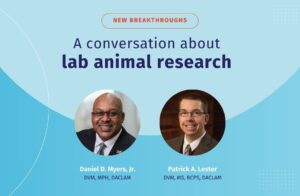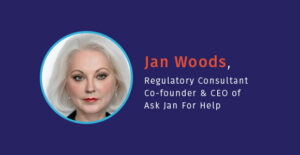Although he has no pharmaceutical or veterinary background, Branson Bruce’s connections to the veterinary industry and love of pets give him a unique advantage in his role at Epicur. Learn more about how he made his way into veterinary pharmaceuticals and how he helps veterinary professionals understand the importance of veterinary drug manufacturing.
Get to know Branson!
We’re excited to learn more about your role, Branson! Can you tell us about your work with Epicur?
I am a Veterinary Specialty Sales Rep and I’ve been with Epicur for almost seven years now. As Sam mentioned in her blog, the regions we each cover are large. I cover Florida all the way to Washington State and work with clients all over the country except for the Northeast.
In general, my responsibilities include meeting with specialty and emergency veterinary hospitals. But I also work closely with university vet schools and build relationships with the doctors and purchasers at those teaching hospitals too.
In talking with Sam, we know she really enjoys the veterinary ophthalmology specialty. Is there a certain specialty that you’re drawn to?
Ophthalmology and oncology are probably the specialties that get the most focus because those are our biggest markets and they use Epicur products the most. Cardiology is starting to grow, but we’ve always had a major focus on ophthalmology.
I enjoy working with both specialties for different reasons. They each bring something unique to their patients with such different personalities. Oncologists deal with death all the time because of the severity of their specialty, but they are upbeat and positive about their work. The ophthalmologists I work with are very low-key and bring their own sense of calm positivity to practice settings. Both have high-stress specialties but consistently make positive patient outcomes their priority and goal.
What did you do prior to joining Epicur?
I have a degree in business, but I went to culinary school and worked in hospitality for the vast majority of my career prior to Epicur, with a few other things here and there. So, it was a very interesting transition joining Stokes Healthcare without working in a medical setting before.
Interesting! How did your career in hospitality end up leading you to Epicur?
I chose to join Epicur/Stokes because of my wife; she’s a veterinarian. We had been living in the Florida Keys and she was working all kinds of crazy hours. She was ready for a change, so we moved up to Tampa. One of our good friends worked for BluePearl and had a close relationship with Stokes Healthcare. The opportunity presented itself, and I was kind of ready to get out of hospitality and sales felt like a natural fit. Hospitality is sales just in a different light.
Oh, your wife is a veterinarian? Do you guys have a house full of pets?
Yes, we have a mini array of pets! We have three tortoises, a rabbit, our dog, and many others. It was funny, I had been at home a lot because of the pandemic and not traveling, and then I was away at one of the first conferences and got a text asking, “what do you think of this cute rabbit?” I said, “I guess it’s cute,” and the next thing I know I come home and we have a rabbit! I go out of town after the pandemic and suddenly, we end up with another one.
From hospitality to veterinary pharmaceuticals is a big change in industries. Was there a big learning curve for you?
Yeah, for sure because it’s a different type of sales; in hospitality, people are coming to you and you don’t really have to seek them out whereas at Epicur, I’m going out and actually engaging prospects trying to ask for the sales. But I’m a people person and I love talking to people, so that part wasn’t much of a difference.
Learning the pharmaceutical world though, that was huge. I “cheated” a lot because my wife’s a veterinarian—I texted or called her anytime I had questions. Sometimes I still text her about answers when I get asked a tricky question. I learn a lot through her.
That’s a nice advantage that she’s a veterinarian! She has a unique influence on your work it seems, but do you also influence her work? Does she ask about products or regulations?
Yeah, when Stokes Healthcare started our new division Epicur Pharma, like many veterinarians, she didn’t know anything about 503Bs, so she had a lot of questions and she got to learn from me in those cases. It’s nice for us to be able to ask each other questions and gain insight from a vendor’s perspective, or vice versa, from a veterinarian’s perspective.
We know Epicur is dedicated to helping vets better understand 503B manufacturing and the benefits of using manufactured products. How has having a personal relationship with a veterinarian influenced your approach in educating about 503B manufacturing?
My wife has helped a lot because whenever I would talk to clients about 503B and the cGMP process they all have this glazed look on their faces. A lot of times they have no clue what you’re talking about or what those terms mean.
In talking with my wife, she recommended putting a focus more on the Food and Drug Administration (FDA) portion of our process. Veterinarians know the FDA; they don’t know cGMP. So, when I talk to clients and say we’re regulated by the FDA that seems to connect better than trying to talk about all the different requirements we have to follow. Saying Epicur is regulated by the FDA is enough to let them know our products are manufactured against strict processes.
I think people are starting to understand more about what 503B means to veterinary care, but we still get a lot of questions, and we still have a long way to go.
What do you see as the biggest challenges in 503B education? Where do those gaps still exist?
Unfortunately, some other 503B manufacturers cause confusion by trying to say 503Bs are the same as 503As when they aren’t, so it muddies the waters a lot. That’s one of our hindrances—veterinary professionals are hearing two different stories.
Another big gap is when veterinary professionals believe the only 503B difference is testing. It’s not just about the testing, anybody can say they test a product; it’s more about validation throughout the entire process. 503B outsourcing facilities adhere to current Good Manufacturing Practices which are the same regulations followed by commercial manufacturers. 503B products must meet strict FDA regulations and potency variance must fall within +/- 10%. Compounding pharmacies, unlike 503Bs, are not required to test the final product.
When you’re working with a new veterinary practice how do you explain that value to them?
The big thing is letting them know that because Epicur is an outsourcing facility they’re getting a quality product. The product is what it says it is on the label, it’s 100% manufactured and we’re giving them a product that they can use for office administration and dispensing so they can start patient care immediately.
That’s the biggest thing a lot of these doctors, technicians, or even purchasers need to hear. They know in certain states they can’t dispense products from a compounding pharmacy, or even keep them in stock, but Epicur is able to provide a product that they can actually start patient care with immediately. They don’t have to wait a couple of days for that patient to get it. That’s always the hardest thing to say, “Hey, your dog needs to be on this eye drop and you need to start it right away…but it’s going to take three days to get it.” Or “your dog’s throwing up, but you have to wait for that medication.”
The value is in our ability to help them start patient care immediately and give them a comfort level in the quality of care that they have in a commercial product.
There are obvious differences between 503A compounders and 503B manufacturers, but it can be confusing to understand what types of products come from each facility. Why is staying educated on the difference so important for veterinary practices?
Unfortunately, I had a recent case that highlighted the importance of knowing where your veterinary drugs come from. The doctor specifically uses Epicur, but a colleague in her practice had ordered a product from a compounding pharmacy and, sadly, the pet died.
Because the veterinarian at the practice advocates for using Epicur’s 503B manufactured products, she asked us to do a presentation for her staff to help them better understand the importance. We are one of the only 503B manufacturers that are offering oncology products, and she only prescribes commercial or 503B manufactured medications.
What would you say are your favorite aspects of your job?
When you get into sales, you’re wanting to sell and to make money, but when I started with Stokes Healthcare, one of the things I started to enjoy most was building relationships. And now that I’ve been here a while it’s not just the relationships, but the friendships I’ve made with all these doctors and technicians. A lot of them I consider true friends at this point. Yes, obviously, I’m trying to sell our products, but I’ve just really developed close bonds with a lot of these doctors and technicians. That’s probably my favorite aspect, just getting to know these people on a personal level.
How do you build that trust that takes you from salesperson and customer to friends?
Well, there’s always the normal sales conversation, but it’s really just getting to know them on a personal level and really trying to connect with them. Telling them you have a great product and a tested product only goes so far, you know, you need to take ownership of it and build that relationship to let them know that you’re there for them. I want them to know that if anything were to happen, they have a person to reach out to. They want to know that they can contact you anytime there is a need.
This was several years ago, but one of my ophthalmologists texted me and asked if I had a moment. I said of course and she explained she had her technician call our office, but the tech felt like she wasn’t getting the answers she needed. So, the doctor just reached out to me. She said she knew she could just talk to me and get an answer immediately and we were able to get it all worked out. That’s the kind of relationship I try to build, with doctors knowing they can reach out at any time and feel comfortable communicating with me, regardless of what the issue is.
It’s about reachability. Patients need medication right away, so they need answers right away. They know they can call and talk to our customer service team, and very rarely do they need to reach out to us directly, but having that direct line is reassuring.
Obviously, you cover a lot of territories and customers can find you at a lot of shows. Where will you be kicking off 2023?
This year is going to be crazy! I know we’re doing VMX, we’re going to the Western Veterinary Conference (WVC), and then a big one for us is going to be the mid-year combined oncology meeting by the Veterinary Cancer Society and The Veterinary Society of Surgical Oncology (VSSO) in April.
The Fall is always packed with the Veterinary Cancer Society show, ACVO ophthalmology meeting, and New York Vet in November. We wrapped up 2022 at Fetch San Diego in December last year. I’m sure this year will look similar.
Thanks, Branson!
More Insights and Veterinary Trends

Innovating Pain Management in Veterinary Research Medicine
Epicur Pharma recently partnered with two passionate veterinary research professionals, Dr. Daniel D. Myers Jr., DVM, MPH, DACLAM, and Dr. Patrick A. Lester, DVM, MS, BCPS, DACLAM, to bring a groundbreaking analgesic solution to market for research animals: Buprenorphine Extended Release. We sat down with them to reflect on their path to partnering with us and their hopes for the future of veterinary medicine.

Controlled Substances 101: How & Why You Must Comply! Parts 1 and 2
December 8 | 7 p.m. ET RACE-Approved CE Credit Hours: 2Free to attend Attendees will learn how to improve security, prevent theft per DEA regulations and proactively prepare for a DEA audit and best practice time saving suggestions from a previous veterinary practice owner, consultant & public speaker/educator, who has worked with Veterinarians cited by the DEA. Save My Seat

Introduction to Cancer Genomics and Precision Medicine for Dogs
April 14 | 8 p.m. ET RACE-Approved CE Credit Hours: 1Free to attend In this presentation, you will learn about cancer genomic testing for the veterinary patient and how tumor genetic biomarkers can guide and enhance diagnosis and treatment protocols. In addition, you will learn how genomics testing can offer better prognostic projections based on genetic mutations present in a particular tumor. Watch It Now


